

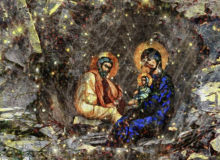
Now for the fourth time since Russia’s brutal invasion of Ukraine, we are celebrating the Word of God becoming flesh as angels proclaimed peace on earth. So where is the peace?
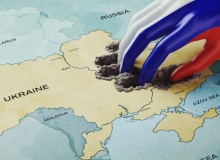
Appeasement only emboldens the aggressor. Can a peace plan that rewards territorial conquest—achieved through invasion, atrocities, mass deportations, and systematic destruction—ever constitute genuine peace?
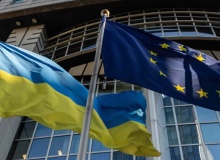
Ukraine is the moral test of our time: What are we willing to defend? Are Europe’s values merely rhetorical or genuinely moral? The rule of law over brute force, truth over disinformation, justice over impunity. Rebuilding Ukraine is not charity; it is Europe rediscovering its own identity.
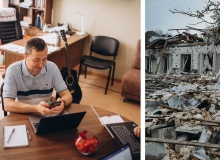
Valentyn Siniy leads a theological institute in Ukraine destroyed by the war. He recounts how they reorganised to continue training pastors and shares personal experiences from these 3 difficult years.
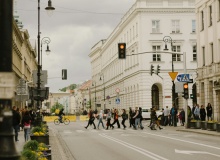
Following the recent violation of Poland's airspace by a dozen Russian drones, the Polish Evangelical Alliance shared several prayer requests.
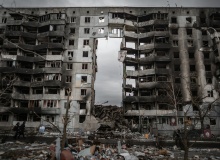
We Christians should stand up for truth, compassion, righteousness and justice for all. We must persist in prayer for a just peace, for Ukrainians and for Russians.
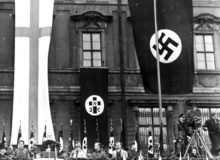
After 1945, many church leaders expressed deep repentance for their silence and complicity, recognising they had confused nationalism with Christianity. The long, painful process of Vergangenheitsbewältigung began within the German churches.
.jpg)
Two visits in 2025 paved the way for the unanimous approval of the Council of Evangelical Protestant Churches of Ukraine as a member of the EEA.
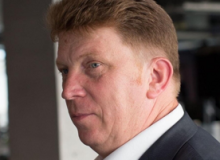
Pentecosal pastor Nikolay Romanyuk was accused of opposing war against Ukraine. “I do not retract my sermon”, he said in court.
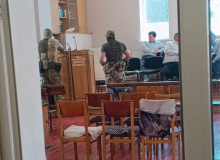
Russian police in Eastern Ukraine raided a Baptist church in Sverdlovsk during Sunday service. They filmed those in attendance and photographed books.
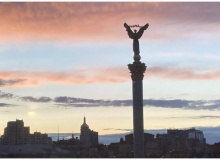
Soldiers and family members of fallen heroes, chaplains, public figures, representatives of churches and religious organisations, were joined at the national breakfast by some 350 invited foreign guests.

Ukrainians celebrated their 34th anniversary of breaking from the Soviet Union with deep gratitude to God, and for their loved ones who have given their lives to keep their country free.
.jpg)
Put yourselves, if you can, in the shoes of one of their parents: your home has been destroyed, your village invaded, and one or more of your children have been kidnapped by the invaders.
.jpg)
According to the North Caucasian Evangelical Alliance, at the beginning of 2024, substantial groups of locals in almost every ethnic group in the Russian part of the Caucasus professed faith in Jesus.
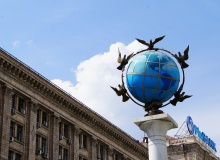
From the independence in 1991 to the ongoing war sparked by Russia’s invasion, Ukraine’s efforts to recover and assert its true history have become acts of resistance, healing, and hope.
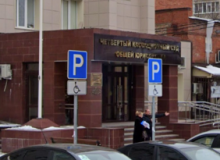
Between January and April 2025, 12 prosecutions were brought against evangelical pastors. Most were Baptists, allegedly preaching to non-believers without notifying the authorities.
.png)
‘No God But Theirs’ (a one-hour documentary in English) tells the case of Melitopol, a Russian-occupied city in southeastern Ukraine where Christians responded to the invasion with public prayer and mutual support.
.jpg)
The Ukrainians who travelled to Wisła, Poland, to attend the ELF conference did not talk about numbers. They shared stories about children suffering from vicarious trauma, regular Christians praying with soldiers on the front line, and the resilient action of churches serving displaced families.
.jpg)
What motivates these emigrants and their children, after years in Germany, to move to a place where their families suffered decades of humiliation, persecution and oppression? Where does the sudden enthusiasm for Russia come from?
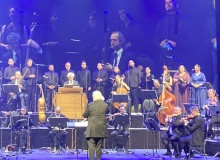
Just as Jesus is betrayed by a close follower and handed over to unjust powers, Ukraine has faced aggression from a neighbouring nation with deep historical ties.
.jpg)
The “rumours of war” should not take Christians by surprise. Churches must “read the times”, commit to real peacemaking, and pray “lucid” and “not abstract” prayers. Leaders from Sweden, France, Portugal and Spain spoke to Evangelical Focus.
.png)
After a first drone damaged the Emmanuil church at night, a second explosion killed a father and his 5-year-old daughter, leaving the mother hospitalised. The family was involved in Christian ministry and had fled eastern Ukraine.
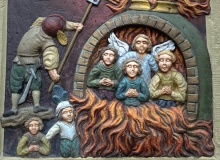
This may be the end of an era, as it was for Augustine when Rome fell; or for the wartime generation enduring the terror of German nationalism. But this is not yet the end.
.jpg)
Tearfund, Evangelical Alliance and other organisations reject what they describe as a “cruel” and “unwise” decision.

Snippets of ‘a better story’ could be heard last week at the ARC conference. But what we need is not a white, Anglo-American, conservative, capitalist, Christian nationalist story attempting to turn the clock back to ‘Christendom’.

Las opiniones vertidas por nuestros colaboradores se realizan a nivel personal, pudiendo coincidir o no con la postura de la dirección de Protestante Digital.